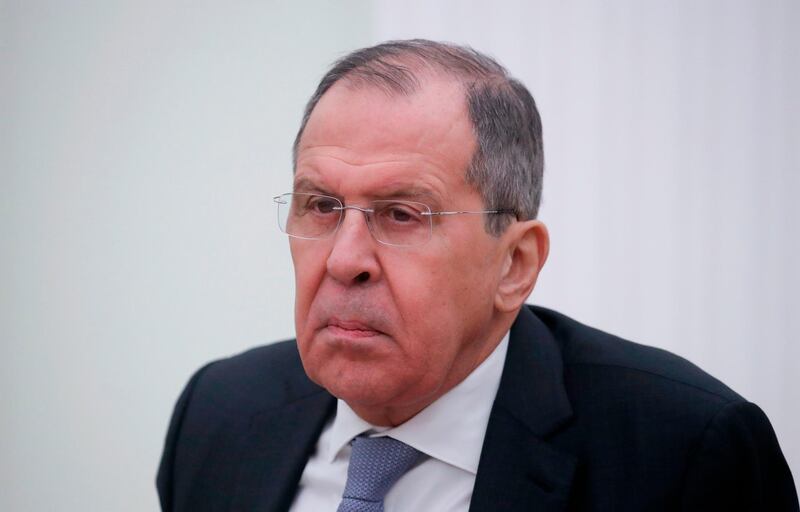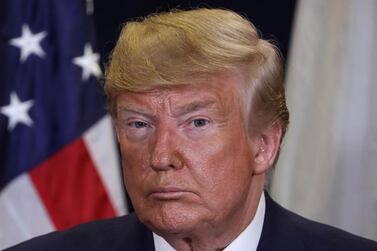Russia and the United States are tangled in a new diplomatic spat after officials in Moscow were reportedly denied US visas to attend the United Nations General Assembly in New York this week.
Russia's Foreign Minister Sergey Lavrov sarcastically thanked US officials on Tuesday for granting him permission to travel to the assembly after it emerged that 10 Russian diplomats had not been granted visas.
"I am happy that we have an opportunity to meet in New York. I am happy that I have received a US visa in the end, unlike members of my delegation,” Mr Lavrov said. “Washington was very considerate in this."
The Kremlin summoned the US Ambassador to Moscow, Jon Huntsman, over the issue and promised a tough response to the decision. The Russian foreign ministry said the US had returned the visa documents to the applicants, saying they had been submitted too early.
Ministry spokeswoman Maria Zakharova described the US failure to issue the visas as a violation of its international obligations.
"This is an outrageous example of disrespect by the United States of America for members of the United Nations, as well as a failure to fulfil its obligations as host country to the world organisation," Ms Zakharova wrote on Facebook.
"Another act of disregard for the rights of sovereign states and international organisations and the inability to somehow comply with their own international legal obligations will be the central theme of the conversation between Lavrov and Pompeo in New York."
The state-funded Tass news agency said several members of Russia’s upper house of parliament, the Federation Council, were among those who had their visa applications denied, including the chair of the International Affairs Committee, Konstantin Kosachev.
Mr Kosachev was sanctioned by the US in 2018 in response to alleged Russian meddling in the 2016 presidential election. He described the refusal as “infuriating” and “unjustifiable”.
The United States has not responded to the Russian allegations.
The incident is just the latest chapter in a long-running diplomatic spat between Russia and the United States, whose ties are already strained over the alleged election meddling and the conflicts in Ukraine and Syria.
In late 2017, Washington ordered the closure of the Russian consulate in San Francisco in response to Moscow's decision to order cuts of more than 450 US diplomatic staff in Russia.
In the diplomatic fallout from Russia’s alleged poisoning of the double agent Sergei Skripal in the UK last year, Moscow ordered the closure of the US consulate in St Petersburg in response to the US decision to shutter Moscow’s representative office in Seattle and expel more Russian diplomats.







